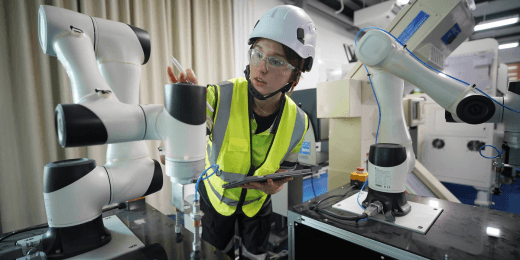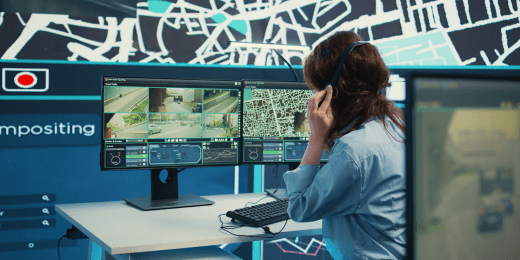A Comprehensive Guide to Hotel Facilities Management
Learn everything you need to know about hotel facilities management in this guide.

Published 18 Apr 2025
Article by
7 min read
What is Hotel Facilities Management?
Hotel facilities management refers to the comprehensive oversight and coordination of a hotel’s physical aspects, ensuring they function efficiently and effectively to meet guests’ needs. It encompasses many responsibilities, including maintenance of the building’s infrastructure, managing utilities such as electricity and water, overseeing heating and cooling systems, ensuring safety and compliance with health regulations, and coordinating renovation and repairs. The goal is to optimize the operational efficiency and sustainability of the hotel’s operations while enhancing the guest experience.
Hotel Amenities vs. Hotel Facilities: What’s the Difference?
Amenities often refer to the complimentary or extra services to enhance a guest’s stay, such as free toiletries, Wi-Fi, breakfast, or access to premium channels. These are usually add-ons that cater to personal needs and comfort, aiming to make a guest’s stay more enjoyable and satisfactory.
On the other hand, hotel facilities are the infrastructure and spaces the hotel offers, including the swimming pool, gym, conference rooms, spa, and restaurants. These facilities are integral to the hotel’s offerings and can define the hotel’s overall scope and category.
While amenities enhance the guest experience on a personal level, facilities contribute to the overall environment and functionality of the hotel, often being key factors in a guest’s decision to choose one hotel over another.
10 Examples of Essential Facilities For Hotels
Expect the hospitality industry to reach $7239.02 billion in 2029, growing at a Compound Annual Growth Rate (CAGR) of 6.1 percent. Thus, it is vital for hotel management to offer the best facilities to attract and retain guests.
Here are 10 essential facilities that every hotel must provide:
Advanced Security Measures: A report by Skift and Oracle Hospitality, ‘ Hospitality in 2025 ,’ found that 56 percent of travelers worry about data security and privacy when sharing information with hotels. Security measures like CCTV, secure key card access, and data protection protocols can build guests’ trust and confidence in your hotel.
Fitness Centers and Gyms: A recent survey revealed that 70% of travelers prioritize health during their stays. To meet this growing demand, hotels now feature comprehensive fitness facilities, including cardio equipment, weight training stations, and specialized yoga spaces.
Swimming Pools and Spas : Pools and spas create both leisure opportunities and visual impact. Premium properties often include specialty features like infinity pools and therapy facilities.
Conference and Meeting Rooms : Hotel conference and meeting rooms feature modern technology, reliable internet, and food services to accommodate everything from business meetings to social gatherings in a comfortable environment.
Business Centers : The rise of bleisure (business and leisure) has enabled hotels to provide essential work tools including computers, printing facilities, and private work areas to support business guests’ productivity needs.
On-Site Restaurants and Bars: Great food enhances the overall guest experience and keeps them coming back. Providing freshly prepared, well-balanced meals and convenient dining options inside the hotel ensures guests have a memorable culinary experience.
Parking and Transportation Services : Hotels address travel logistics through secure parking facilities, valet options, and shuttle transportation, particularly important in city centers and resort destinations.
Childcare and Play Areas : Family-oriented properties include monitored play spaces and outdoor recreation areas, helping parents manage travel with children more effectively.
Retail Spaces and Boutiques: Hotels incorporate convenience shops offering everything from basic necessities to luxury items, creating opportunities to serve guest needs.
Laundry and Dry-Cleaning Services : Hotels offer practical laundry solutions through self-service facilities or professional cleaning services, particularly valuable for extended-stay guests and business travelers.
Make Every Stay a Five-Star Experience
From front desk to housekeeping, get complete business visibility, guarantee guest safety, and help your teams deliver their best work.
The Importance of Maintaining Hotel Facilities
Customers expect a high level of service, comfort, and convenience when they stay at a hotel. Therefore, maintaining hotel facilities is crucial to meet their expectations and ensure repeat business. Here are some key reasons why maintaining hotel facilities is vital for success:
Enhances the Guest Experience :A well-maintained hotel facility contributes to a positive guest experience and makes them feel valued. It also creates a lasting impression that encourages guests to choose the same hotel again.
Increases Operational Efficiency: Properly maintained facilities require less frequent repairs and replacements, reducing operating costs. Efficient operations also lead to fewer disruptions in service, ensuring guests have a hassle-free stay.
Promotes Safety and Compliance: Regular maintenance of facilities helps identify potential safety hazards and ensures compliance with health and safety regulations. It not only protects guests but also minimizes liability risks for the hotel.
Contributes to Sustainability: Proper maintenance practices help extend the lifespan of equipment, reduce energy consumption, and decrease waste generation, promoting a more sustainable operation. It can also be a selling point for environmentally conscious guests.
Maintains Brand Standards: Consistently maintaining facilities contributes to upholding brand standards , which are essential for building trust with guests and maintaining a positive reputation within the hospitality industry.
Best Practices for Managing Hotel Facilities
Top hospitality businesses understand that creating outstanding guest experiences isn’t a one-time effort. For example,Butlin’s, a UK seaside resort chain, uses technology to ensure consistent quality checks across its facilities.
Here are some best practices for managing hotel facilities that can help maintain high standards and deliver exceptional guest experiences:
Leverage Smart Technology: Artificial Intelligence (AI) and Internet of Things (IoT) technologies are helping hotels streamline their operations by automating facility management . For example, IoT sensors can track energy usage and highlight areas to improve, while AI chatbots can handle guest inquiries more efficiently.
Proactively Plan Maintenance Tasks: Regular maintenance is essential for ensuring all facilities function optimally. A proactive approach, including scheduled inspections and timely repairs, prevents breakdowns and extends the lifespan of essential equipment.
Commit to Guest Safety: A hotel should be a haven where guests always feel secure. Installing advanced security systems, conducting regular safety drills, and maintaining emergency response plans are crucial to safeguarding guest well-being.
Adopt Sustainable Practices: Sustainability is no longer a trend—it’s something modern travelers expect. Using energy-efficient appliances, conserving water, and reducing waste can cut costs while meeting eco-friendly hospitality brand standards .
Train a Competent Hospitality Team: A well-trained team is at the heart of exceptional guest service. Providing continuous training and skill development programs ensures staff members can meet evolving industry demands and guest expectations.
Use Data to Enhance Operations: According to Hilton’s “2024 Traveler” report , nearly two-thirds of travelers often book hotels based on access to local experiences. Hotels can use analytics to track guest preferences and offer tailored on-property experiences.
Value Guest Opinions: TripAdvisor reports that 81 percent of travelers often read reviews before booking a hotel. It makes it crucial for hotels to monitor online reviews and feedback to improve their services and meet guest expectations.
Develop a Strong Maintenance Strategy: A clear maintenance strategy is vital for maintaining facilities. Outlining routine checks, budget allocations, and repair priorities ensures smooth hotel operations and a seamless guest experience.
Encourage Open Communication: Effective collaboration between hotel departments ensures that operations run smoothly. Maintaining open lines of communication helps resolve issues quickly and improves overall service efficiency.
Stay Flexible and Evolve with Trends: Flexibility is essential for staying competitive in the ever-evolving hospitality sector. Embracing new trends, updating facilities, and improving service offerings help hotels maintain a leading edge.
Improve Hotel Facilities Management With SafetyCulture
Why Use SafetyCulture?
SafetyCulture is a mobile-first operations platform adopted across industries such as manufacturing, mining, construction, retail, and hospitality. It’s designed to equip leaders and working teams with the knowledge and tools to do their best work—to the safest and highest standard.
Streamline processes, eliminate bottlenecks, enhance resource utilization, and build an agile and scalable infrastructure with SafetyCulture. Strive for operational excellence to boost competitive advantage, foster sustainable growth, and deliver long-term value.
✓ Save time and reduce costs✓ Stay on top of risks and incidents✓ Boost productivity and efficiency✓ Enhance communication and collaboration✓ Discover improvement opportunities✓ Make data-driven business decisions
In this article
Related articles
Operations
Business Processes

Understanding the Importance of Process Automation Reliability
Learn how reliable process automation is key to safe, consistent operations and how it minimizes quality and compliance risks.
Logistics
Operations

Transportation and Logistics: What’s the Difference?
Learn about the importance of transport and logistics within the supply chain and how it is used in business operations.
Logistics
Operations

An Overview of Transport Network Analysis
Learn about transport network analysis and how network-level insight improves reliability and reduces operational risk.